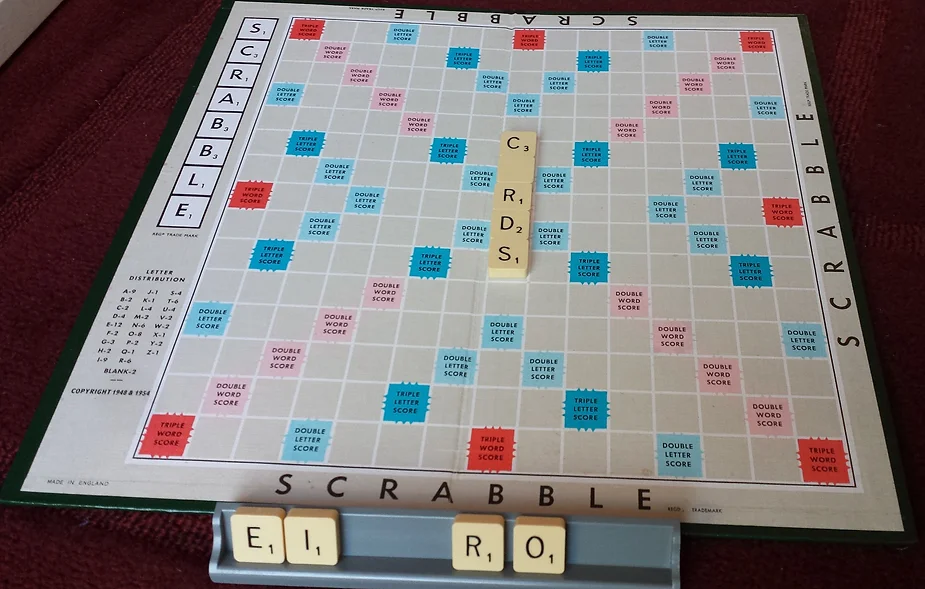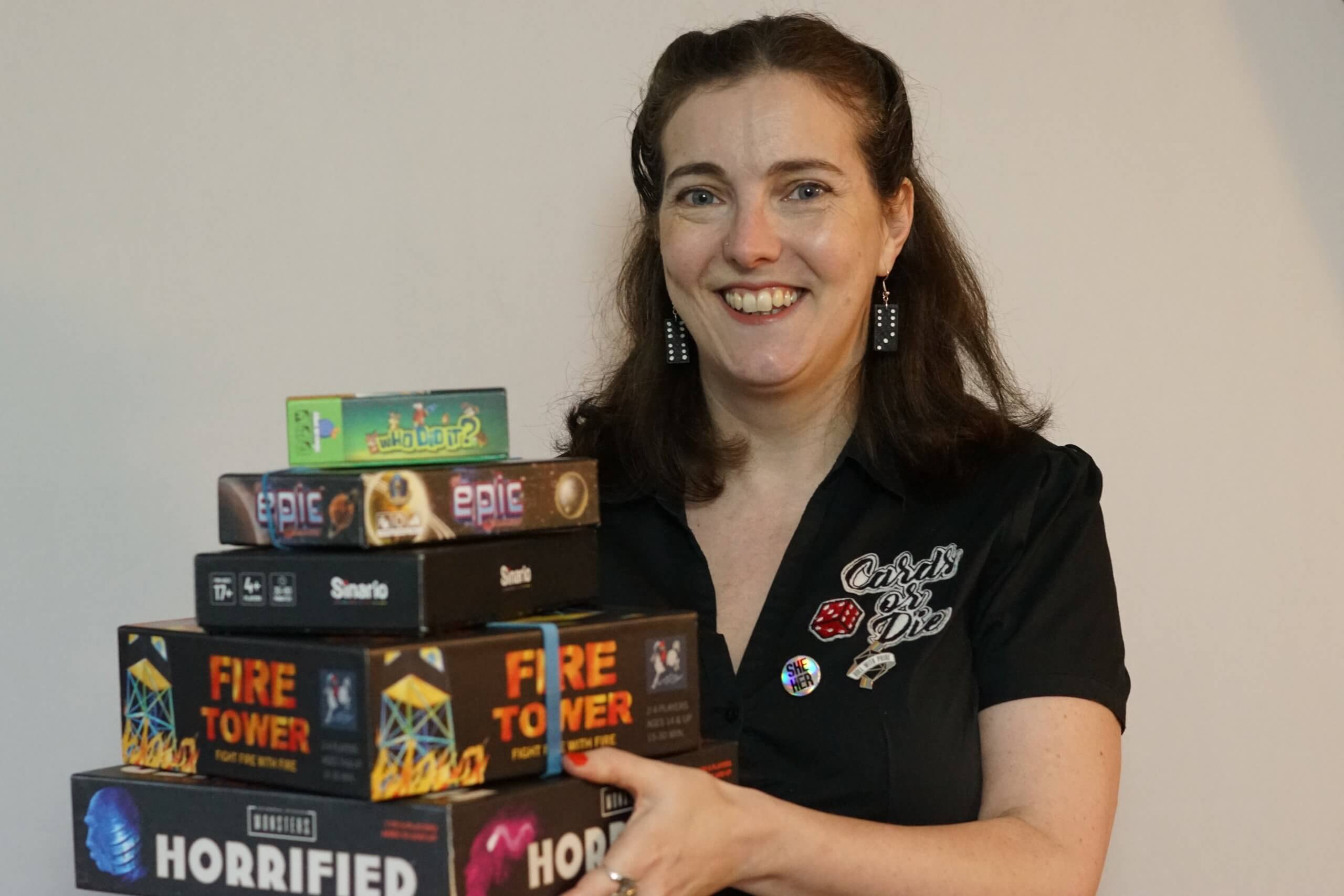Word games are my favourite but least played games. The double edged sword of an English degree and English teaching for 17 years means that not only will no-one play with me but if they do concede, the expectations are so high that I often just crumble under the pressure. Then win. I’m the person you all look at when they say ‘Literature’ in the pub quiz or when anyone wants to know what any word means. I don’t know what every word is and I haven’t read every book. Even writing this blog I can feel the weight of your expectations. You may assume I know loads of good words. Please re-read that last sentence and adjust your expectations accordingly.
So in no particular order we have:
1. Scrabble
To be honest this is not one of my favourites but it’s the classic word game and its popularity endures. It has made an easy transition to an online format. Created by Alfred Butts in 1938, the word scrabble comes from the Dutch ‘schrabbelan’ (which means to claw or scrape). Ironic really when you think how many rows you’ve had about whether words are ‘foreign’ or not! I am rubbish at scrabble. I stare at my letters endlessly and if you judged me by the words I play you might conclude that I’ve never read a book in my life!
If you want more Scrabble facts – click on the image below
2. Upwords
Upwords works by stacking letters on top of each other (as the name suggests). When you look at reviews this is a popular alternative to scrabble – less intense, less time consuming and scoring is straightforward. Having more options due to the ability to stack on words and not feeling under pressure to use ‘difficult’ letters makes this more enjoyable and accessible for me.
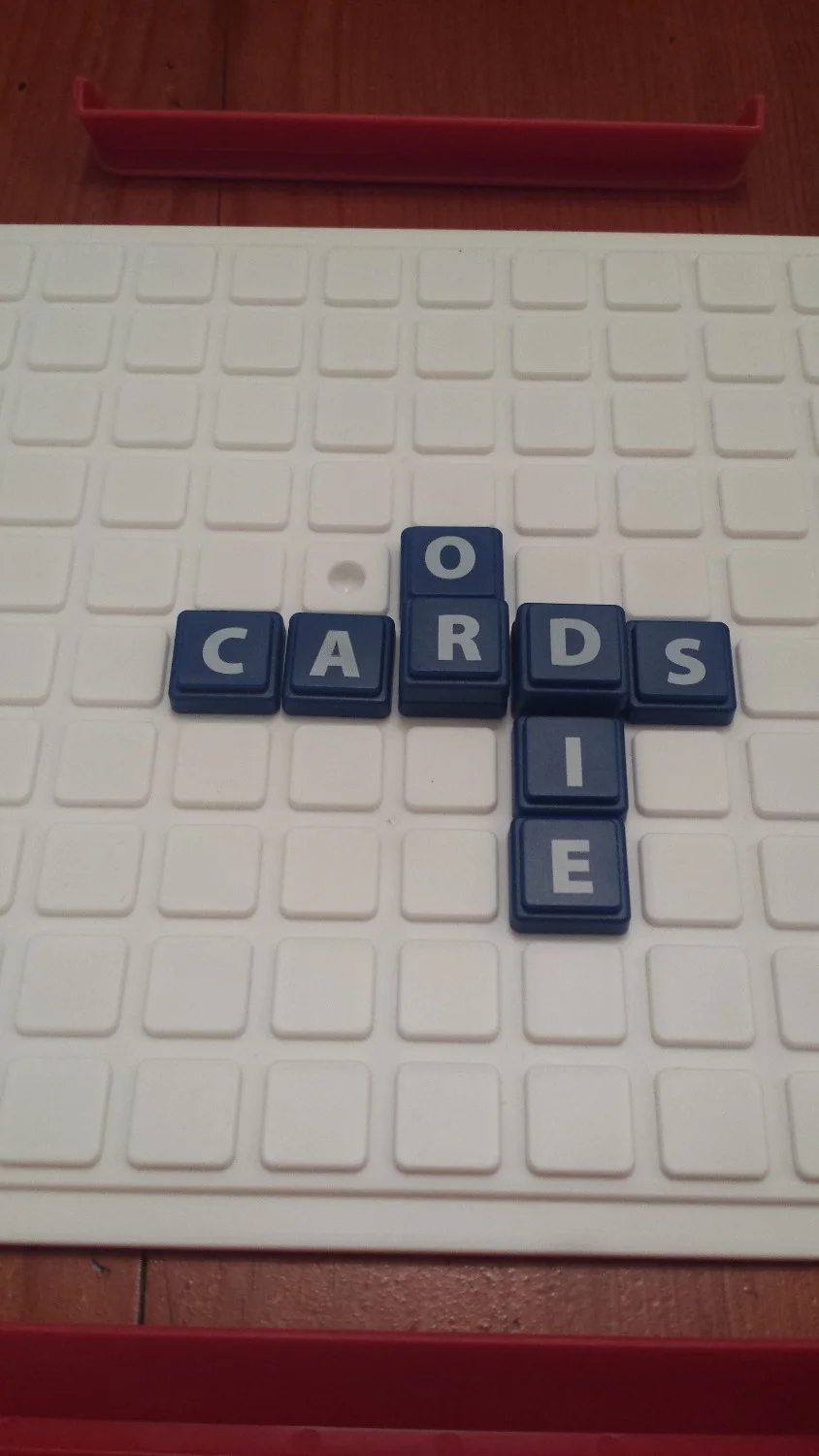
3. Option
The variation here is that letters are on a prism with one blank side and two letter sides. The letters are white on a burgundy background or burgundy on white. As the name suggests this gives you lots of options! Scoring is more complex though – you can score bonus points by completing a word in the same colour letters and of course there is more consideration needed about how to achieve the highest score. You can flip letter prisms to make new words (providing both the new word and the existing word still makes sense). It’s a rarer game than Scrabble or Upwords which are readily available in many charity shops.
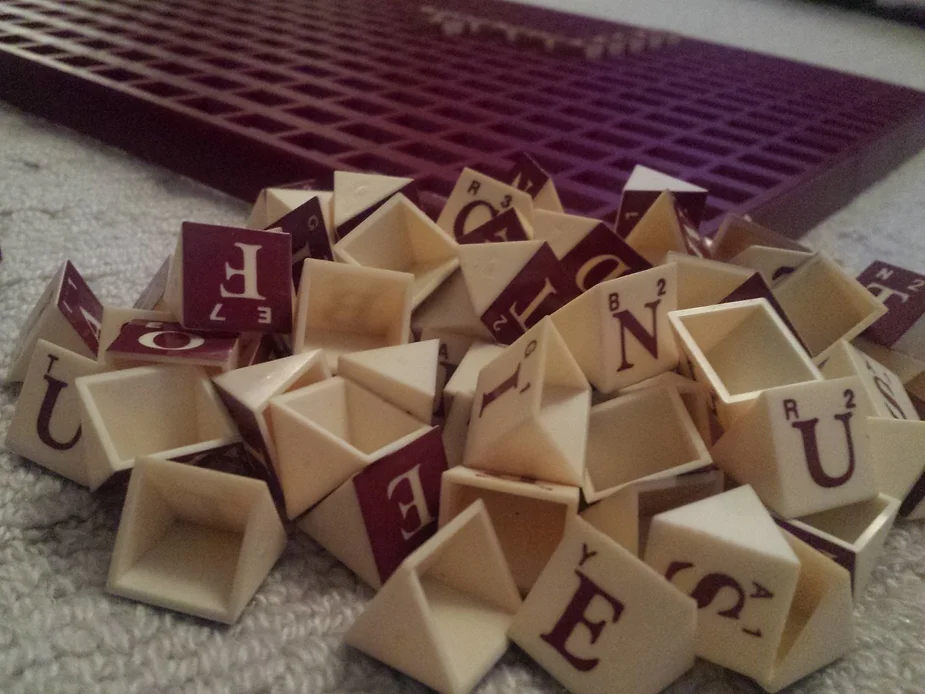
4. Bananagrams
There are many reasons I love Bananagrams, apart from the fact it’s fun to say and the game employs banana based terminology: it’s compact and portable and plays up to 8.
You race to create a grid of words using up all your tiles, which you can rearrange at any point. There is a time pressure but I get absorbed in my own grid, and I love it when I remember obscure words and they fit neatly in my pattern! Even better still, when I risk deconstructing part of my grid and it pays off. Of all the word games we have here at Cards or Die, this and Boggle (see below) are my favourites.
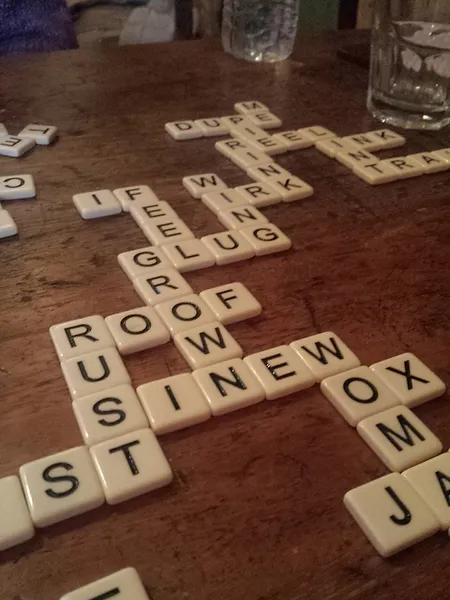
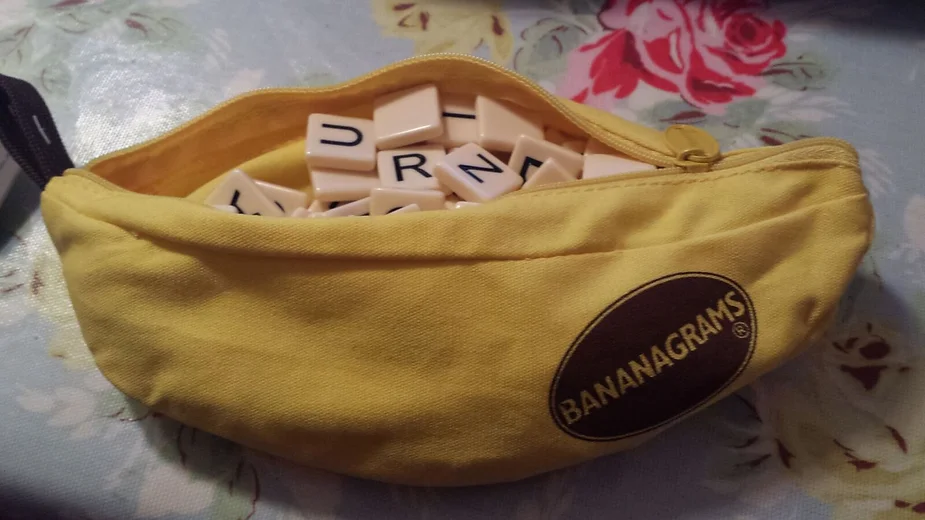
5. Yahtzee Word
A recent addition to the Cards or Die collection, this is already proving popular. A family at a recent event played this all afternoon. Like regular Yahtzee it is challenging and fun. Roll the letter cubes and then complete words from 2 letter and up. Unlike Yahtzee, you must complete the rounds in order – every round you must record a score, choosing whether to gamble and re-roll for All Consonants or Yahtzee Words (which use every letter) or play it safe and record your three letter word! We’ve always avoided using the timer when we’ve played at home but it’s there if you want extra challenge (i.e stress!!).
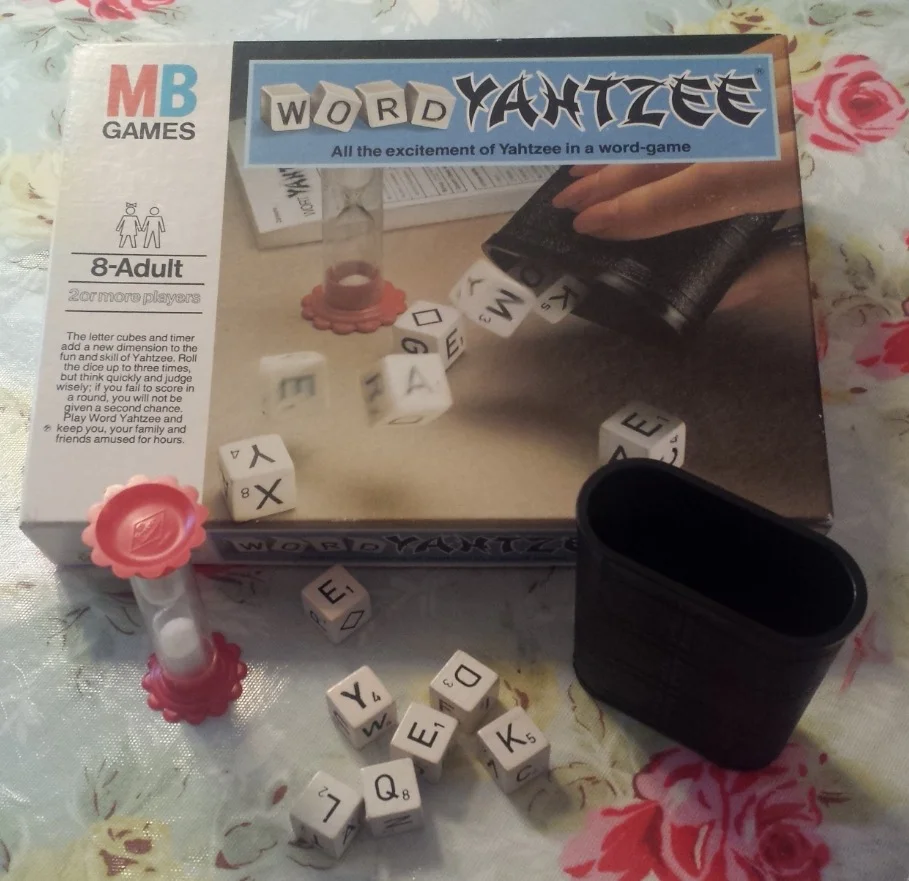
6. Boggle
Another favourite of mine since childhood. You have 3 minutes to spot as many words as you can (the letters have to be touching) which is enough time for it not to be stressful… mostly. Rather than just a race to get the most words, the fact that any duplicated words are deleted from your score means that really you are trying to spot unusual words, which is a nice twist. Like Scrabble it has made a successful transfer to the virtual world and in fact variations of it used to be in the newspapers too. I also love the fact that whenever I post Boggle pictures, people immediately start playing – go on… what have you got?
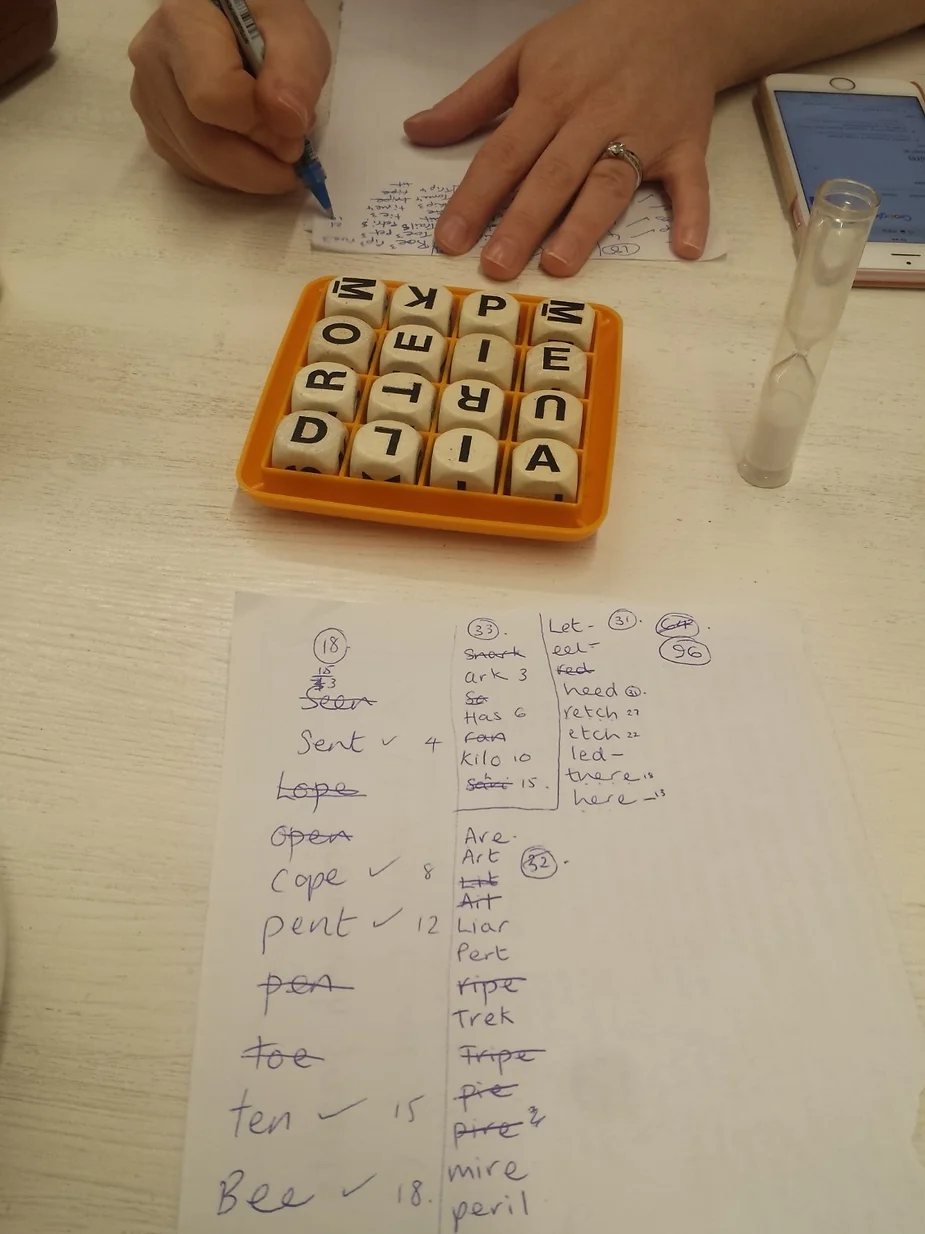
7. Kan-U-Go
When I googled Boggle to check the timer length because Boggle is upstairs and I’m sitting at the computer (it’s not laziness, I’m efficient) I was reliably informed by ebay and amazon that it’s vintage! It’s from 1986!! But Kan -U- Go – that’s proper vintage that is! My version is from 1934 – a ‘thrilling and absorbing’ game for 2 to 7 players. I probably wouldn’t go for ‘thrilling’ but it is a good game. Be the first player to get rid of all your cards by playing words of 5 letters or less. It’s a quicker game than Scrabble or its variants, and as you can see, you need to make sure you have plenty of space.
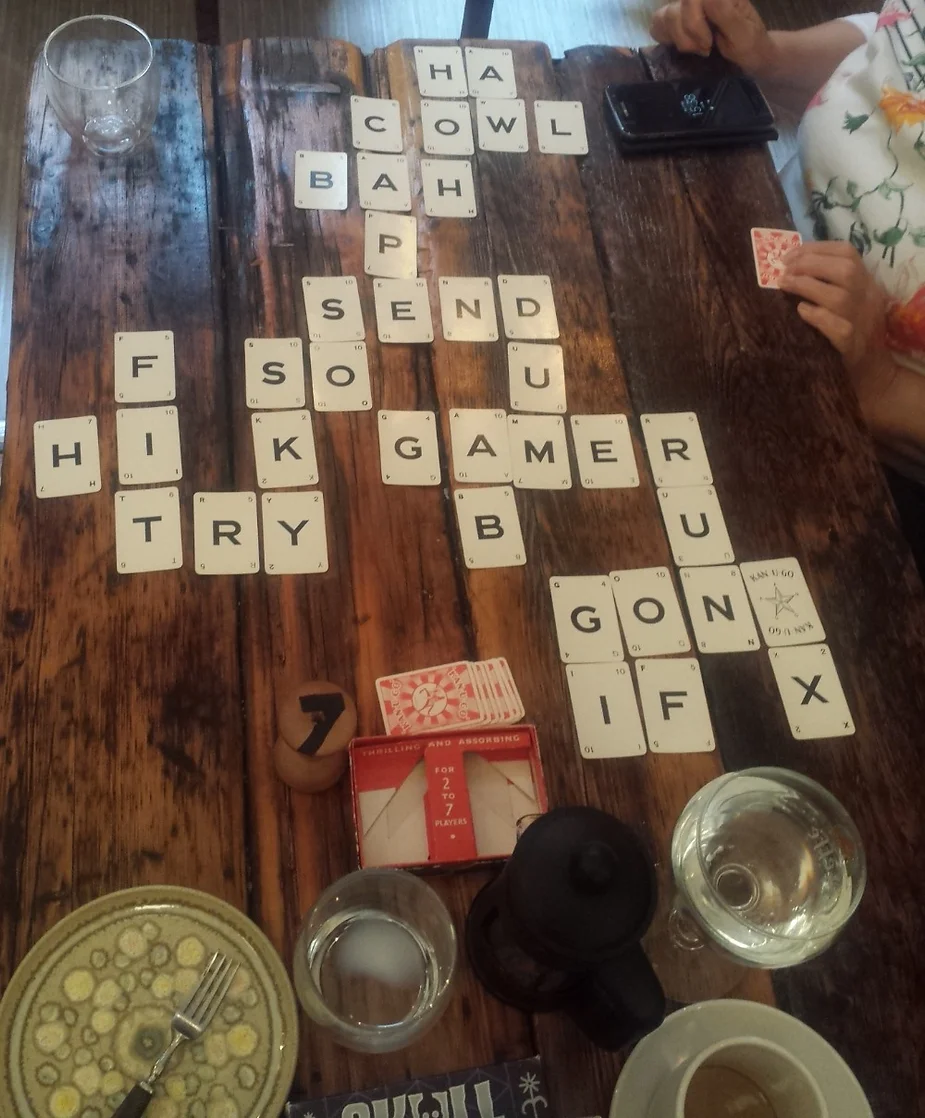
8. Lexicon
There are three possible variations of Lexicon but the most common version is a 2 to 4 player game in which you aim to get rid of all your cards by playing a word, adding to a word that has been played or substituting a letter in an existing word. Remaining players add up the score of the letters in their hand, lowest score over a set number of rounds wins, or, as you reach 100 you are eliminated.
9. Roots
Another retro classic – this time from the 70s. Roots requires you to play the highest scoring word or words from your hand with the aim of being the first to reach 100 points. Spelling out your family name when you hold one of the family cards gives an instant win opportunity. Bonus and penalty cards add an extra layer of challenge but basically this is a straightforward family friendly game.
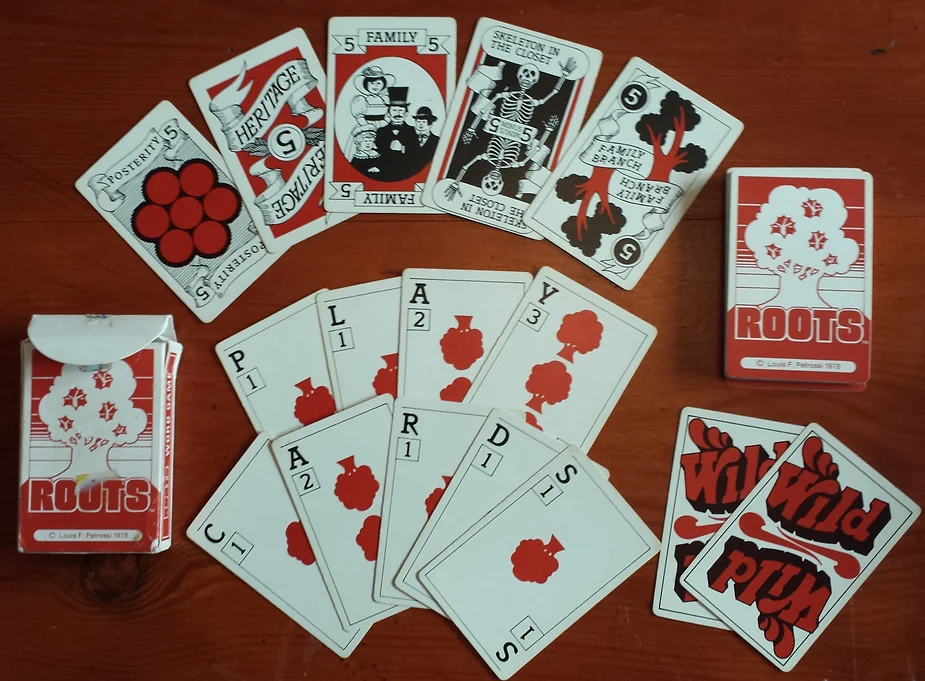
Word games are brilliant for testing your brain and competing against both yourself and others. I find them satisfying because when I don’t win, I can still be pleased with my achievements. Sometimes I dig up some absolute pearlers from the depths of my brain – words that have rattled round in there for years devoid of meaning. The look on people’s faces when you play one of those is priceless, improved upon only by their expression when they say ‘Is that even a word? What does it mean?’ and you respond ‘Definitely. And I haven’t the foggiest.’ Games which provide opportunities for smugness are the best kind of games and definitely don’t cause arguments in our house. At all 🙂
